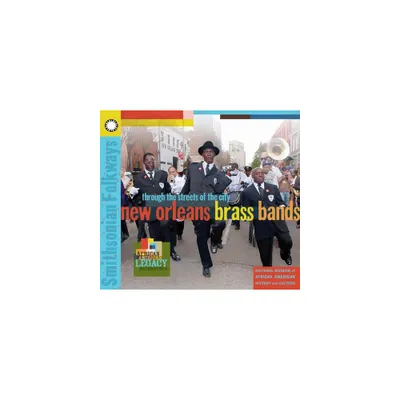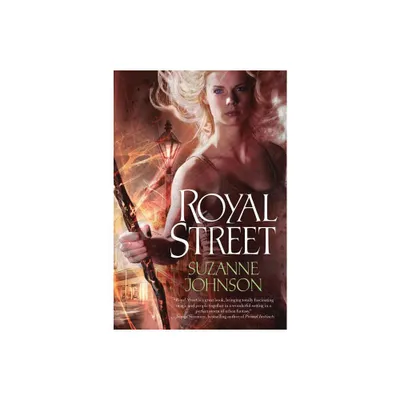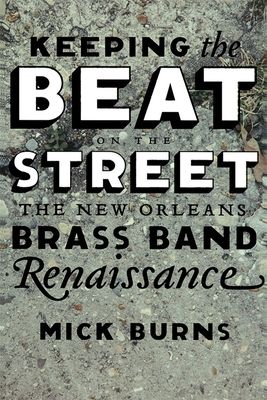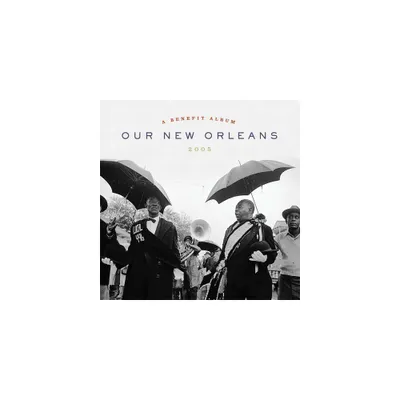Home
New Orleans Street Singer
Loading Inventory...
Barnes and Noble
New Orleans Street Singer
Current price: $17.99


Barnes and Noble
New Orleans Street Singer
Current price: $17.99
Loading Inventory...
Size: OS
*Product Information may vary - to confirm product availability, pricing, and additional information please contact Barnes and Noble
Ford "Snooks" Eaglin
's first released recordings, the ones collected here, suggested to the world that
Eaglin
was a great lost
country-blues
player when he was, in fact, an excellent electric guitar player and a
gospel
-influenced singer who much preferred playing
R&B
with a band. When folklorist
Harry Oster
heard
busking with his guitar on a street in the French Quarter in 1958, he whisked him over to Louisiana State University and recorded the tracks collected here, either assuming that
was a
folk
artist, or possibly even asking him to portray one for the sake of the recording. Either way,
New Orleans Street Singer
was a revelation when it was released by
Folkways Records
a year later in 1959, presenting to the world a gifted guitar player and a naturally soulful singer who brought a kind of jazzy New Orleans feel and groove to the
folk-blues
standards he was covering. The album is no less a revelation in the 21st century in this expanded edition from
Smithsonian Folkways
, although hindsight allows us to realize that the
stance was probably more
Oster
's preference than
's. The guitar work is quick and fluid, with lead bursts that surprise and delight, continually settling on unexpected but highly effective chordal resolves (the original instrumental
"Sophisticated Blues"
is a case in point), and the singing throughout is steady and informed, sounding a bit like
Ray Charles
, with tinges of both
and
jazz
phrasing. In
's hands traditional fare like
"Saint James Infirmary,"
the near-
ragtime
"High Society,"
and the familiar
"Mama, Don't You Tear My Clothes"
(a variant of
"Baby, Let Me Follow You Down"
) all become reborn and re-formed into definitive versions. The seven additional tracks expand the original album to around 70 minutes in length, and the alternate takes included of
"Careless Love,"
"Driftin' Blues,"
"The Lonesome Road"
show that
didn't necessarily approach a song the same way twice in a row. ~ Steve Leggett
's first released recordings, the ones collected here, suggested to the world that
Eaglin
was a great lost
country-blues
player when he was, in fact, an excellent electric guitar player and a
gospel
-influenced singer who much preferred playing
R&B
with a band. When folklorist
Harry Oster
heard
busking with his guitar on a street in the French Quarter in 1958, he whisked him over to Louisiana State University and recorded the tracks collected here, either assuming that
was a
folk
artist, or possibly even asking him to portray one for the sake of the recording. Either way,
New Orleans Street Singer
was a revelation when it was released by
Folkways Records
a year later in 1959, presenting to the world a gifted guitar player and a naturally soulful singer who brought a kind of jazzy New Orleans feel and groove to the
folk-blues
standards he was covering. The album is no less a revelation in the 21st century in this expanded edition from
Smithsonian Folkways
, although hindsight allows us to realize that the
stance was probably more
Oster
's preference than
's. The guitar work is quick and fluid, with lead bursts that surprise and delight, continually settling on unexpected but highly effective chordal resolves (the original instrumental
"Sophisticated Blues"
is a case in point), and the singing throughout is steady and informed, sounding a bit like
Ray Charles
, with tinges of both
and
jazz
phrasing. In
's hands traditional fare like
"Saint James Infirmary,"
the near-
ragtime
"High Society,"
and the familiar
"Mama, Don't You Tear My Clothes"
(a variant of
"Baby, Let Me Follow You Down"
) all become reborn and re-formed into definitive versions. The seven additional tracks expand the original album to around 70 minutes in length, and the alternate takes included of
"Careless Love,"
"Driftin' Blues,"
"The Lonesome Road"
show that
didn't necessarily approach a song the same way twice in a row. ~ Steve Leggett


















